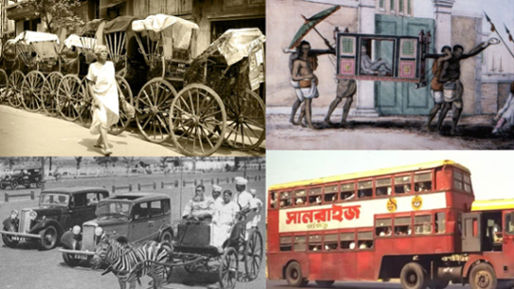
Indian society has been characterized by collectivism for many decades, where the interests of the family, the community, and other groups are prioritized over personal wants. In the past, identity was tied much more to the position of the individual within the overall framework. However, a significant cultural shift is now underway as India modernizes and its urban middle class rapidly expands. Collective thinking still remains dominant; nevertheless, it is experiencing constant pressure from Western individualistic values, particularly among the youth living in big cities such as Delhi, Mumbai, Bangalore, and other cities. Values such as personal ambition, self-reliance, and freedom of choice are gaining prominence. This “me-first” attitude has emerged from India’s rapidly growing urbanized economy and the middle class. With growing cities and the ever-growing outward economy of the nation, millions are coming out of the poverty line and becoming part of the new middle-income earners. With a growing income and more disposable income in their hand, people could have the freedom to make choices; this basic human tendency makes Indians seek individualism distinct from family or social roles. Numerous people belonging to the newly emerging middle class are no longer hungry, thirsty, or living in rags, and as a result, they are not interested in hearing about arranged marriages and obeying their elders’ orders. The change in the mindset of the people of India from a significantly collectivist to an individualist orientation is attributed to the country’s high economic growth and the development of middle-class citizens.
The story of Prince Bhati is representative of this culture of individualism prevalent in India’s middle class. Born and raised in a Gurjar family in Greater Noida, the young accountant’s son was destined to inherit the family’s business and adhere to its strict class system. However, after getting an engineering degree from Mumbai, Prince did not follow the same path. Pursuing tech jobs in Dubai and later in Singapore, he embraced a fiercely independent lifestyle of serial dating, global travel, and publicly renouncing his community’s orthodox traditions.“I cherish my roots but refuse to let them solely define me,” affirms Prince. “My identity isn’t tethered to ancestors or groups, but an ever-evolving individual journey of self-discovery and unapologetic authenticity. I’m the architect of my destiny.”
Several key factors are driving this profound cultural change.
Expanding Opportunities and Choices
On a societal level, being on one’s own and not a part of the family system is the freedom of many young middle-class Indians who are currently living independently. As opposed to previous generations who could not afford to education, today’s urban youth have the leeway to attend university, choose a career field, not rush into marriages, and map out their own lives, not necessarily in the conventional ways and working in order to be happy. The chance of a life independent is altogether a metaphor for this new type of independence and self-sufficiency that the culture of the show has put into practice to free one from the constant scrutiny and cries of the traditional home. This liberty allows them to decide what professions to pursue, whom to date or marry, how much to spend, and how to live, matters that were perhaps not available to their parents or grandparents. Social media glorifies the single life through flatmate experiences, solo travel adventures, and the consumption of goods/services geared towards individual needs rather than family units. The youth from popular culture, embrace individualism as the ultimate value, thus questioning collective values endorsed by their parents. This idea of independence has been augmented by exposure to a very glamorous and cosmopolitan world.
Avoiding Traditional Responsibilities
India derives its collectivist culture, which entails responsibilities and obligations towards older generations, such as supporting parents, paying for other relatives, obeying the elders, and meeting expectations set by society. From this perspective, this obligation is also burdensome and oppressive for those who seek to achieve their individual self-actualization. By living independently and prioritizing personal goals over traditional duties, India’s individualistic urban youth feel liberated from the gender roles, family politics, and societal expectations that previous generations unquestioningly embraced. With newfound freedom, they simply manage to work on personal goals and aspirations without having to sacrifice dreams for the good of the group.To the globally influenced young professionals, such individualism implies that one cannot or should not assume social roles such as marriage, raising a family, or taking care of parents as they have seen their parents do. However, they choose jobs, professions, and individual pursuits and do not follow a path similar to what their parents or grandparents were subjected to. At the same time, this shift towards individualism clashes with deeply ingrained cultural values of family allegiance, respect for elders, and community priorities, for a significant portion of India’s urban youth, the allure of personal freedom and self-determination outweighs the pull of traditional collectivist norms.
Appeal to Employers
The fierce self-prioritization among young professionals is highly appealing to corporate employers. Singles without family responsibilities are perceived as having to be more temporal and geographically mobile and thus willing to work more hours or take jobs with demanding hours that involve travel or require relocation without the burden of caring for children or other family members. Business organizations continue to foster this mentality of selfishness, as it is portrayed as a way of achieving personal career advancement and wealth in the form of expensive products and stocks. By not getting married at an early age and not taking on conventional roles and responsibilities, younger employees are more mobile in the global arena and focused on career goals.
This mentality is incompatible with cultural tradition, but it resonates with business rationality and emerging markets for a modernizing, urbanizing India. Self-centered workers who aim to achieve their career objectives rather than focus on their family responsibilities are valuable resources to the corporate world and the labor market. This search for autonomy perpetuates itself – as more young people abandon tradition in the hope of attaining personal freedoms and the option to prioritize work and consumption over marriage, the patterns become woven into the very fabric of the young, urban, middle-class Indian culture. This used to fall more in the realm of deviant behavior but is rapidly becoming the new normal for the burgeoning and increasingly competitive middle class of Indians.
In conclusion, the phenomenon of individualism in India cannot be generalized and reduced to the phenomenon of the tendency to nonconformity and rebellion; it is essentially multifactorial and influenced by both economic and socio-cultural factors. In such a transition as the nation is experiencing, the most crucial issue thus remains the search for the balance of self and society. Accepting tradition or culture on the one hand, and embracing individuality and talent on the other hand will be the way forward for achieving the true potential of Indians in the society of the twenty-first century.











